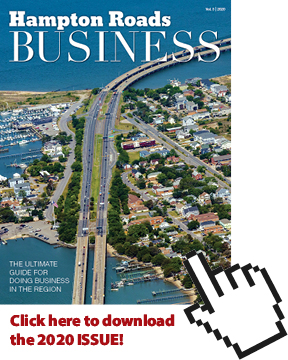Telework could be here to stay, according to findings from a survey of top federal government executives released Tuesday by Reston-based Fortune 500 defense contractor Science Applications International Corp. (SAIC).
A majority of the 300 respondents surveyed by Market Connections said they expect the technology changes put in place at their federal agencies in response to COVID-19 to become a permanent way of conducting business post-pandemic. The survey included respondents from a variety of federal agencies, including public health agencies, the Department of Veterans Affairs, the Treasury Department and the General Services Administration.
Although commute-free days in Northern Virginia could become the new norm for federal government employees, it required a massive transition, including adding infrastructure and cybersecurity measures to allow federal employees to work remotely. Before the pandemic, few federal workers had the necessary IT equipment to conduct work at home. But with 80% of respondents reporting they found it extremely or somewhat challenging to prevent COVID-19 transmission in federal facilities for those who couldn’t telework, changes needed to be quickly made. Agencies had to learn to embrace the cloud.
“The notion was that basically a few people would work remote some days, not everybody … that created a number of challenges,” says Mark Forman, SAIC vice president of digital government strategy. “Bandwidth, secure access, devices, those were overnight major challenges in order to provide the continuity of people being able to do their job.”
Pre-pandemic, it wasn’t completely abnormal for federal government employees to work from home — but if they were, it was only a small fraction of employees at a time and only one to two days per week, according to the survey. For that reason, federal agencies quickly adjusted to allow for closer to 90% to 95% of the workforce to telework, Forman says.
“They didn’t have the bandwidth for more than 20% to 25% of the people offsite at one time because that’s what they had historically built to, so they had to figure out ways to increase the bandwidth” to allow for a far greater number of remote workers on the cloud, Forman says. Now with increased bandwidth put in place, 41% of respondents said they expected to telework an average three days a week post-pandemic, and another 41% said they expected to telework four or five days a week.
But as the number of people working remotely skyrocketed, managers also feared the possibilities of cyberattacks and fraud waste and abuse, according to the survey results. Nearly 80% of respondents reported they found it extremely or somewhat challenging managing federal IT systems to maximize telework and 74% reported they found it extremely or somewhat challenging protecting government systems from cyberattacks during the pandemic.
“You can’t just manage it like you used to with the perimeter of the building,” Forman says of preventing cyberattacks. “We’re in a much more virtual environment and security controls and risk management has to operate at that level.”
And as federal programs such as the Small Business Administration’s lending programs grew at an unprecedented rate, 75% of respondents reported they found it extremely or somewhat challenging to detect fraud, waste and abuse during the pandemic.
With these concerns in mind, federal government decision makers will be more focused on identifying and dealing with fraud, waste and abuse to ensure that remote working programs are managed effectively.
Aside from cybersecurity and fraud concerns, respondents also indicated that they’ll be working to keep up remote productivity, which has already seen good performance from the remote workforce. Of the respondents, 84% reported that they are more or just as productive since shifting to remote work. Indicators of the increase in productivity included the lack of daily commute time and distractions in the workplace, Forman says.
“We’ve overcome that hurdle that people seem to worry in the past about telework, that you couldn’t trust the employees to be productive. And now, based on the survey, we know people are being productive, and in some cases more productive,” Forman says. ““If you can do your work on your own, maybe it’s not worth fighting the traffic. You’ll have all of the security, equipment and bandwidth to be able to work offsite.”

Subscribe to Virginia Business.
Get our daily e-newsletter.



